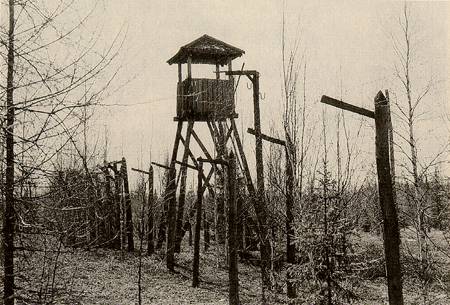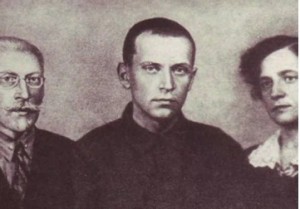Gulag Stories Can Still Energize the Right in America
 The terms “left” and “right” aren’t used as much as they once were during the Cold War period, unless they are spit out by detractors. Today we seem to prefer “liberal” and “conservative.” Even being “ideological” has a negative connotation to some, as if believing in anything too strongly makes for fanaticism. Woe betide Christians who surrender to their faith.
The terms “left” and “right” aren’t used as much as they once were during the Cold War period, unless they are spit out by detractors. Today we seem to prefer “liberal” and “conservative.” Even being “ideological” has a negative connotation to some, as if believing in anything too strongly makes for fanaticism. Woe betide Christians who surrender to their faith.
The ideological struggle, however, is as virule as ever, if not more so. The left has gained control of key institutions like government, media, and education. Among our World War II Allies, the Soviet Union seems to have been the clearcut victor. The governments of Europe have been hijacked by communism since the war and are now teamed up with Islam to wipe out the traditional face of Christendom and free societies.
The war destroyed the strongest anti-communist countries. Once vanquished, the leaders of German and Japan were executed, the voices of opposition silenced. Strangely, America picked up the baton from Germany to challenge its former ally Russia. The resulting Cold War didn’t do a lot to stop the flood of Marxism to the West, but it at least seemed to energize the right in America.
The atrocities of men like Uncle Joe Stalin, Pol Pot, and Mao Tse-Tung had to be monitored by someone. Nor should we forget that the left is elusive in its ability to re-invent itself. Now it is the welfare and Nanny state of “revolutionary” public-led secularists and libertarians who, it is hoped, will further bring down Western Culture and Christianity.
 With entertainment, electronic gadgetry, and comfort galore, many people forget about how bad life can get under a totalitarian left. The Gulags were important reminders to the right in America. Writers like Solzhenitzen were avidly studied and warnings were absorbed.
With entertainment, electronic gadgetry, and comfort galore, many people forget about how bad life can get under a totalitarian left. The Gulags were important reminders to the right in America. Writers like Solzhenitzen were avidly studied and warnings were absorbed.
Many conservatives and establishment Republicans today have forgotten their ideological roots. Some even think that being economically frugal with money is enough, with social issues and national defense much less important.
Those on the right should make an effort to read the Gulag writers now and then. One important work now available free online is Alexander Dolgun’s Story: An American in the Gulag (1975) about an American embassy worker (photo) in Moscow who was falsely imprisoned, starved, and tortured for 25 years in Soviet Union prisons. There were millions more in Gulags that people knew nothing about. Vigilance might be needed today more than ever.
 The terms “left” and “right” aren’t used as much as they once were during the Cold War period, unless they are spit out by detractors. Today we seem to prefer “liberal” and “conservative.” Even being “ideological” has a negative connotation to some, as if believing in anything too strongly makes for fanaticism. Woe betide Christians who surrender to their faith.
The terms “left” and “right” aren’t used as much as they once were during the Cold War period, unless they are spit out by detractors. Today we seem to prefer “liberal” and “conservative.” Even being “ideological” has a negative connotation to some, as if believing in anything too strongly makes for fanaticism. Woe betide Christians who surrender to their faith. With entertainment, electronic gadgetry, and comfort galore, many people forget about how bad life can get under a totalitarian left. The Gulags were important reminders to the right in America. Writers like Solzhenitzen were avidly studied and warnings were absorbed.
With entertainment, electronic gadgetry, and comfort galore, many people forget about how bad life can get under a totalitarian left. The Gulags were important reminders to the right in America. Writers like Solzhenitzen were avidly studied and warnings were absorbed.